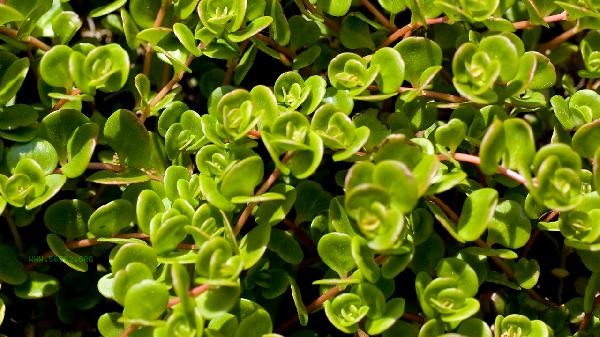Autumn is quietly approaching, as the saying goes, 'One autumn rain and one cold, ten autumn rains require cotton to wear.' We have welcomed one of the solar terms of autumn - the autumnal equinox. The autumnal equinox symbolizes the midpoint of autumn, and since ancient times, this season has been considered the day when day and night are evenly divided, with day and night being perfectly divided. From then on, the Northern Hemisphere will gradually enter a period of shorter days and longer nights, with reduced sunlight exposure and deeper coolness at night. The surface solar heat will not only decrease, but also dissipate at an accelerated rate. There is a folk saying that goes' after the autumnal equinox, it gets cold overnight ', which vividly describes the natural phenomenon of gradually increasing coldness after the autumnal equinox. Of course, this is not just a feeling, but also a challenge to the body. Small organisms in nature are beginning to hide in caves, indicating that the season of 'autumn harvest and winter storage' has arrived. And we also need to start adjusting our lifestyle, especially our dietary habits, to strengthen our body's resistance and prepare for the upcoming cold weather. The autumnal equinox is not only a symbol of a solar term, but also an important turning point for diet and health. As the saying goes, 'There are rules for eating during the autumnal equinox, and eating recklessly can lead to illness.' This sentence is still important today as it reminds us to pay more attention to food selection and dietary moderation while taking tonics in autumn.

1. Do not overeat
As the temperature gradually decreases, the metabolic rate of the human body will also change. In autumn, especially after the autumnal equinox, people often feel a significant increase in appetite. This is because cool weather makes it easier for people to feel comfortable and stimulate their appetite, but it is also the period when dietary management needs the most attention. After experiencing the heat of summer, people's digestive system may not have fully recovered from the negative state of summer, and overeating can easily cause gastrointestinal burden.
Specific suggestion: You can adopt the method of eating small meals and multiple meals, stopping when you are about 70-80% full at each meal. If you accidentally overeat, you can engage in some relaxing walking activities to help with digestion.
Recommended Recipe: Milk Oat Broth of white fungus
1. First take a small piece of white fungus and soak it in cold water until it is completely softened.
2. Cut off the roots of the soaked Tremella fuciformis and tear them into small pieces. Rinse thoroughly with clean water to ensure that any impurities in the Tremella fuciformis are completely removed.
3. Take a handful of oats and a small amount of glutinous rice, clean them thoroughly, and soak them in enough water for half an hour to allow them to absorb water and expand slightly.
4. Add an appropriate amount of water to a boiling pot. After the water boils, add Tremella fuciformis and keep it slightly boiling over low to medium heat. Cook slowly for about 30 minutes until the Tremella fuciformis is fully cooked and the soup is slightly viscous.
5. Add the soaked oats and glutinous rice together to the Tremella fuciformis pot, keep it boiling slightly, and cook for about 20 minutes until both oats and glutinous rice become soft and sticky.
6. After turning off the heat, according to personal taste, you can add an appropriate amount of milk, as well as a small amount of rock sugar or honey for seasoning, and stir evenly.
Secondly, avoid stimulating foods
Autumn is the season when dry qi is in high demand, especially after the autumnal equinox. In traditional Chinese medicine theory, excessive dryness can harm the lungs and intestines of the human body, leading to discomfort symptoms such as dry mouth and tongue, and dry skin. The dietary adjustment in autumn should focus on nourishing yin, moistening dryness, and being light, avoiding overly greasy, spicy, and salty foods, which may exacerbate physical discomfort. During the autumnal equinox, we should reduce our intake of stimulating foods such as chili peppers, garlic, onions, etc. These foods can easily cause an increase in the body's "fire energy". At the same time, overly sweet and greasy foods should be moderately controlled to avoid causing blood sugar fluctuations or increasing gastrointestinal burden. Using cooking methods such as steaming and boiling can preserve the nutrition of food to the greatest extent possible, while avoiding the use of excessive oil and seasonings.
Specific suggestion: If the taste is usually heavy, you can gradually reduce the amount of seasoning used and gradually adapt to light flavors. When dining out, try to choose light dishes.
Recommended Recipe: Steamed Pork with Lotus Root
1. Prepare fresh pork, grind it into small granules, add scallion and ginger paste, light soy sauce, oyster sauce, and stir well until fully cooked.
2. Cut a section of lotus root with uniform thickness into thin slices, blanch it in water beforehand to make it soft, and facilitate subsequent wrapping of meat filling.
3. Wrap the meat filling in lotus root slices, put it in a steamer, and steam over high heat for 15 minutes until cooked.
4. After serving, sprinkle goji berries and chopped scallions on top, and drizzle with a little steamed fish and soy sauce.
3. Avoid eating raw and cold vegetables
Although autumn vegetables are fresh and delicious, eating them raw may cause gastrointestinal discomfort. Cold and raw food entering the stomach can require additional energy from the gastrointestinal tract to heat and digest these foods, which may lead to diarrhea or indigestion. In addition, uncooked vegetables may contain pesticide residues and bacteria, which are harmful to health. In the diet after the autumnal equinox, it is recommended to thoroughly wash and cook vegetables before consumption. Cooked vegetables are easier to digest and can reduce gastrointestinal irritation, helping the body absorb nutrients better.
Specific suggestion: If you want to eat cold dishes such as salads, you can blanch the vegetables before making them, and add some warm ingredients such as cooked beans, meat, etc. for pairing.
Recommended Recipe: Steamed Carrots with Flour
1. Peel the carrots and cut them into thin strips. Mix them well with a small amount of corn oil to increase aroma and improve taste.
2. Add an appropriate amount of flour and cornmeal to the shredded carrots, stir well, and coat them evenly with powder.
3. Put the processed carrot shreds into a steamer with a damp cloth and steam over high heat for about 78 minutes. After steaming, add finely chopped scallions and garlic, and season with sesame oil. Mix well and serve.
Fourth, eat more warm and nourishing foods
After the autumn equinox, as the weather gradually cools down, eating more warm and nourishing foods can help enhance the body's resistance. For example, yam is rich in various nutrients and has a good nourishing effect on the spleen and stomach. You can make yam Congee by peeling yam and cutting it into small pieces, cooking Congee with rice until both yam and rice are soft and rotten. There are also red dates, which can replenish qi and nourish blood. They can be consumed directly or used to make soup.
Fifth, pay attention to the diversity of food
In order to ensure that the body receives comprehensive nutrition, the diet should be diversified. Don't limit yourself to just a few foods, consume a variety of foods such as grains, vegetables, fruits, meat, beans, etc. For example, in a meal, there can be both staple rice and stir fried vegetables, stewed meat, and soy products. Autumn is a harvest season and also an important period for taking care of the body. Reasonable dietary habits are not only related to our daily health, but also the key to preventing diseases. After the autumnal equinox, one should pay attention to avoiding overeating, avoiding stimulating foods, avoiding raw and cold vegetables, eating more warm and nourishing foods, and paying attention to food diversity.




Comments (0)
Leave a Comment
No comments yet
Be the first to share your thoughts!